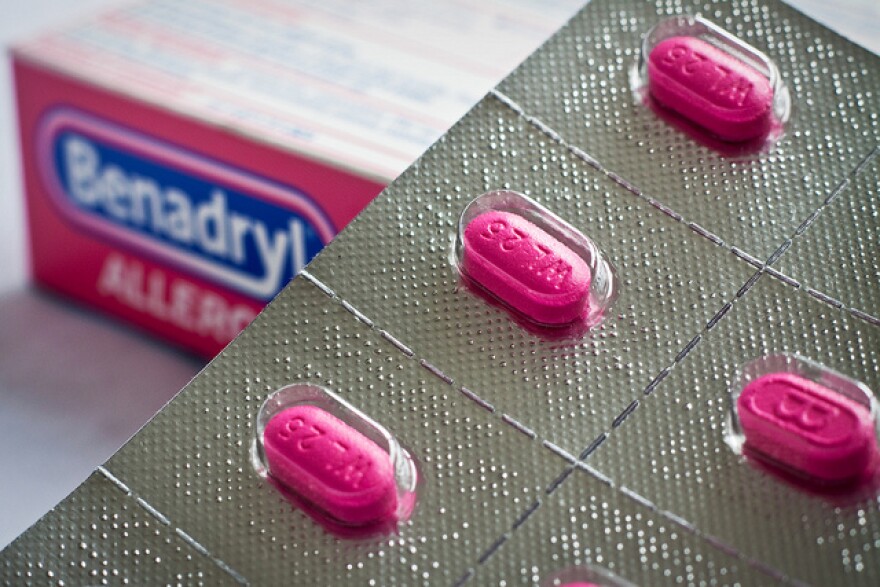If you've ever used the phrase "a shot in the arm" to describe something as invigorating, you're probably not an allergy sufferer who's had to endure ongoing injections to control symptoms. Shots are not only painful but often inconvenient to schedule into a busy life. Yet that's been the standard course of treatment for many allergy patients for the past hundred years. Recent developments, however, may make shots obsolete for those who suffer from hay fever.
This week on Take Care, Dr. Linda Cox, talks about the new development of allergy drops. Cox is the president of the American Academy of Allergy, Asthma and Immunology, and an allergist and immunologist from Ft. Lauderdale, Florida.
Click 'Read More' to hear our interview with Dr. Cox.
In order to treat an allergy, the allergen is introduced to your body so a tolerance can be formed. This process is called immunotherapy. And, in this sense, allergy shots and drops work similarly.
“The two types of treatment that we’re talking about, the drops and the shots, involve introducing the allergenic substance into the body in high doses,” Cox said. “So what you essentially are doing is inducing tolerance to the allergen by exposing either by an injection or underneath the tongue high doses of the allergen. So there is an importance to the dose of the allergen in terms of teaching the immune system to be tolerant, rather than allergic.”
This means that people who go to the doctor for allergy shots may soon be able to administer drops to themselves in their own homes. For now, allergy drops would specifically target seasonal allergies, not, for example, a cat allergy. Currently, the FDA is considering allergy drops specifically directed at grass pollen.
If these drops are approved, users would take a tablet underneath the tongue every day. According to Cox, this would be started two months before allergy season, and is safe enough to be done at home. And Cox says these allergy drops have the potential to change a person’s life by eliminating the seasonal allergy symptoms.
“So what this offers is the allergic person the convenience of getting a treatment that will change their immune system, hopefully long term, potentially giving them a cure,” Cox said, “What this treatment has been shown to do with the first course of treatment is you have a response. You get better with the first treatment course. Then it’s recommended you continue for three years. But then at three years, it looks like you can stop, and it looks like you might be done with your seasonal allergies.”
In addition to the grass pollen drops, a ragweed version went to the FDA advisory committee at the end of January for consideration. Cox said that other types of tablets are also in development.
Fortunately for those who suffer from allergies, this new treatment does not have long term negative side effects.
“The most common cited side effect is kind of itchiness, tingling of the mouth, which a fair percentage of people get,” Cox said. “It’s a local effect, but it’s very early in treatment and it just seems to go away."


